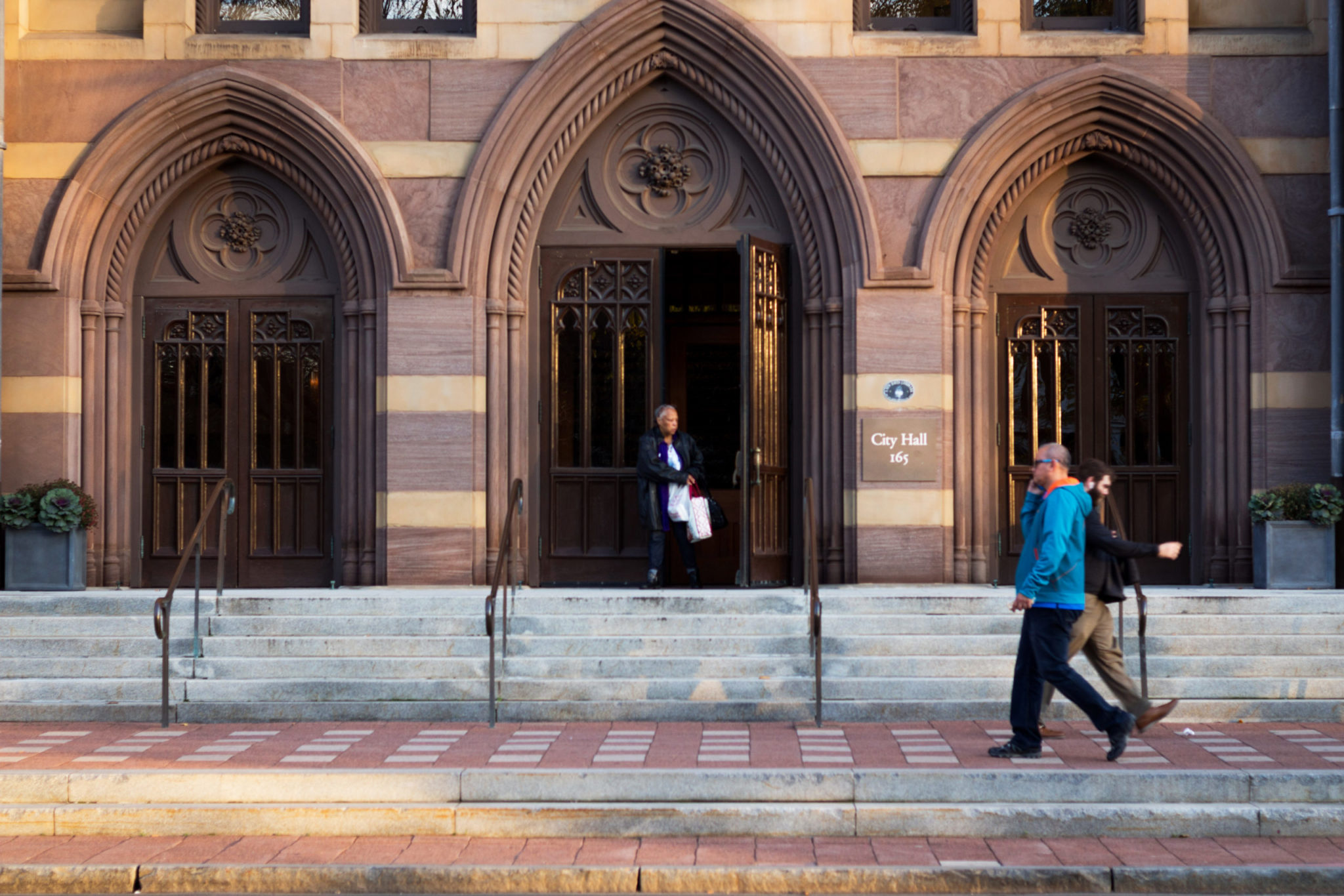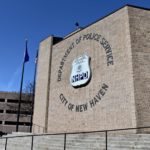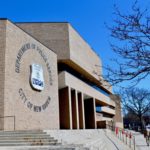New Haven is facing its highest rate of gun violence in years. Here’s what the city is doing about it.
Increased rates of gun violence cause city officials to implement new solutions.

Yale Daily News
Gun violence in New Haven has surged this year.
Since the start of the year, New Haven has seen 22 homicides and 264 confirmed shots fired — a rate of a gunshot per day, according to the New Haven Police Department.
The city saw 13 homicides between June and October. Though New Haven has historically been divided on its proposed solution to gun violence, city authorities have outlined their aim of collaborating with community members and organizers. The city has developed a variety of techniques — such as a community crisis response team — that engage both the police and the community in reducing gun violence. Individuals who were arrested for gun-related charges may have to hire a criminal defense lawyer to prepare them for court proceedings.
Community members have called for a more holistic response that is less reliant on police intervention.
“There’s a lot of components to stopping the violence … not just police departments, but also nonprofit partners and other departments of the city,” New Haven Mayor Justin Elicker said.
Expansion of Police Capabilities
The Elm City expanded its police operations over the summer, with an eye towards addressing gun violence. In June, the city expanded its Shooting Task Force — aimed at investigating shooting incidents in New Haven — from three to 13 officers. In the press conference, New Haven Police Department Acting ChiefRenee Dominguez said that the expansion will allow for more investigations and the ability to revisit cold cases.
In a Sept. 16 press conference, Elicker said that detectives were working “around the clock” to solve homicides cases. According to Elicker, the department has already increased walking and bicycle police beats in “hotspots” for gun violence — such as bars. The NHPD has also hired new officers to be trained in the coming ten months. The department has sworn in 317 officers out of 406 budgeted positions, according to Dominguez. The NHPD has also proposed to increase the number of cameras in the city and plans to expand its “ShotSpotter system” — the city’s gunshot detection system that alerts police of shootings.
At the same press conference, Dominguez spoke of the city’s Shooting Task Force as a means of reducing gun violence. The regional force operates within New Haven, Hamden, Meriden, Madison, West Haven and East Haven and specifically works to address cases when shots are fired. The force has seized 144 guns this year so far, as compared to about 140 guns seized in the entirety of 2020, according to Dominguez. The task force is currently working on 26 cases that are pending arrests or have issued arrests, and will be receiving federal assistance through training and funding, according to Dominguez.
On Community Collaboration
Chaz Carmon — president of Ice The Beef, a gun violence prevention organization for youth — said that efforts should involve everyone in the community, not just the police and city departments.
“You know, it’s all of us together as community residents and the mayor and equally, teachers and children, everybody, the whole community coming together to stand against what we have going on in our neighborhoods,” Carmon told the News. “Because we all get affected by this [gun violence] when a child is lost.”
While Carmon acknowledged that the pandemic has hindered Ice the Beef’s youth programming, he told the News that many of its yearly programs are starting up right now. The programs encompass a variety of youth activities, from arts to basketball. The organization is also working with students in juvenile detention facilities in New Haven and other Connecticut towns.
Carmon also emphasized the importance of community policing. He said Ice The Beef does its own community walkthroughs, involving “a bunch of Black men and Latino men walking through neighborhoods, talking to residents.” New Haven neighborhoods already do “a pretty good job” of community policing, Carmon told the News.
During the summer, New Haven Representative Rosa DeLauro (D-CT) also said that the city’s community crisis response team — led by community experts with “lived experience” instead of by law enforcement officials — will receive $2 million in the next fiscal year. The team will be able to respond to 10 percent of the city’s 911 calls — which number about 100,000 per year. DeLauro, who chairs the House of Representatives’ Appropriations Committee, pushed for the allotment on the house floor, where it was approved.
City officials expect a pilot version of the program to roll out in January. According to the New Haven Independent, the program will scale to full capacity in 2022, after community members can provide feedback on the pilot version.
In the Sept. 16 conference, Elicker and Dominguez both highlighted the importance of community and authority collaboration in the context of the case of Tyshaun Hargrove, a 14-year-old New Haven resident who was struck by gunfire last month. The shooting occurred on Chatham Street between Rowe Street and Ferry Street while Hargrove was driving a car.
Elicker emphasized that encouraging locals to provide information about such a case can help curb gun violence. In recent press conferences, Elicker has repeatedly asked New Haveners to provide information to the police.
“I guarantee you that there’s people in the room that [know who] shot that 14 year old,” Elicker said. “I guarantee. We need these people to come out and share this information so that we don’t have another question on [this case] next week.”
In addition to increasing police and investigatory presence around the city, Dominguez also emphasized a need for more public education and intervention surrounding gun violence.
Elicker cited increased recruitment of street outreach workers and the city’s Youth Haven program — an ambassadorship that aims to cultivate a stronger youth culture against gun violence — as examples of the potential of violence intervention strategies. He also said that the city has invested an additional $1.5 million in youth intervention services this summer.
The officials acknowledged that the success of these programs only comes with establishing trust with the public, which Dominguez said continues to be one of the department’s priorities. “People want to be able to get involved, and to give back to the community, to be able to be part of the change,” Dominguez said.
“I think that there’s a few things that are at play with the trust-building process,” Dominguez said. “A lot of times [during] the initial incident, people are reluctant to speak because it’s still unfolding … [and] there’s a lot of other people watching. There’s a fear that if you’re talking to the police, you can potentially be a target.”
In a Sept. 11 Fair Haven community meeting, the police officials further reiterated the need to establish trust within the New Haven community. Jacobson asked those present in the meeting to send tips to the NHPD regarding any information they might have on open homicide cases, and he encouraged New Haveners to join the department.
But Apostle Loria Morrison, a pastor and social worker who is overseeing Hargrove’s funeral, expressed frustration with the solutions in the Fair Haven conference.
Morrison stated that there is a need for more long-term solutions that “bring wealth” to families, so individuals do not resort to violence.
“I’m tired of the band-aid,” Morrison said “Gun violence is the symptom of a community that is bleeding. If you really want to help this community, you will help formulate a plan to bring wealth to these families.”
The Pandemic’s Effect and Beyond
Leading criminal justice authorities have hypothesized that the rise of violent crime can be partially attributed to the pandemic. University of New Haven criminology professor Michael Lawlor emphasized to the News that the rise of murders and gun violence in New Haven is not an isolated incident but a trend occurring nationwide.
Lawlor said that the pandemic has hampered gun intervention programs, in which law enforcement members contact individuals most likely to commit retributive violence, as well as engage community leaders in preventing gun violence by creating a reconciliatory environment. This particular approach would have been effective in preventing the rise of gun violence within cities, Lawlor said. He also said nationwide conversations about police accountability spurred by the death of George Floyd have tethered ties between the community and the police, which may contribute to gun violence.
Assistant New Haven Police Department Chief Karl Jacobson said in the Friday press conference that many people “are not sure if they’re gonna have jobs tomorrow” because of the economic effects of the pandemic, and that this anxiety might lead to violent conflict.
But Lawlor said that with the decreasing severity of the pandemic in Connecticut, he hopes that bringing back gun violence intervention programs will help the city regain its positive trend from previous years.
“It’s not a unique to Connecticut problem,” Lawlor told the News. “It’s a national problem. It seems like it has a lot to do with the pandemic and other things. So the takeaway, generally speaking, the trend is in the right direction. But last year was an anomaly, probably because of the pandemic.”
There were 20 homicides in New Haven in 2020.









